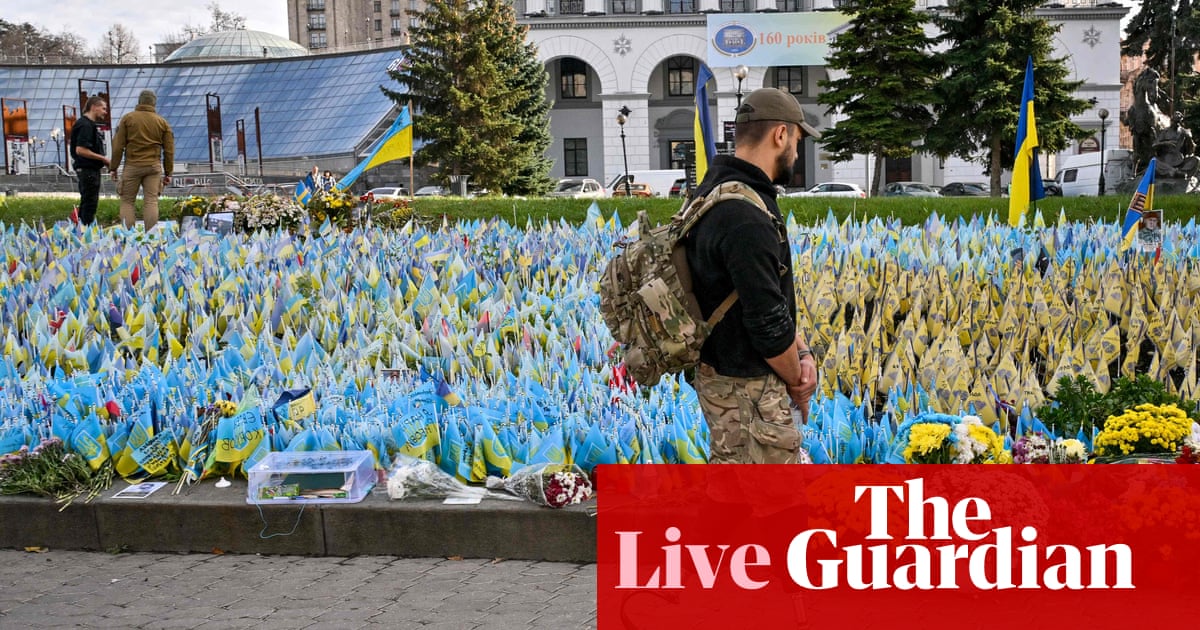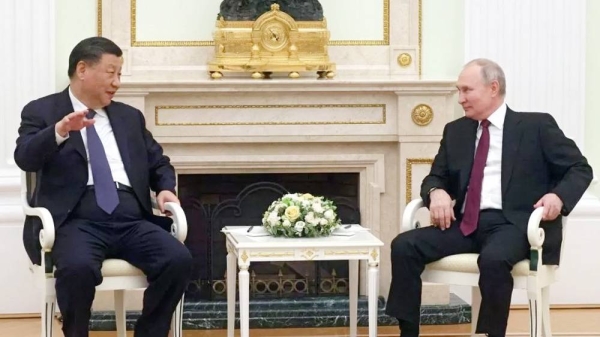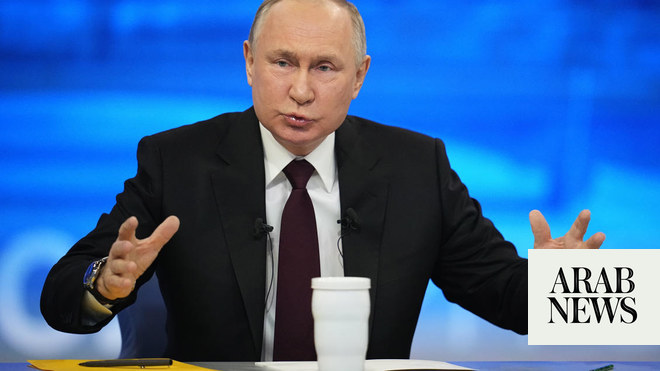
On Sunday, Vladimir Putin ordered his nuclear deterrent forces to be placed on a “special regime of combat duty”. The Russian defence minister, Sergei Shoigu, has now clarified what this meant: the increased manpower devoted to Russia’s strategic nuclear triad: land-based strategic nuclear rocket forces, sea-based nuclear deterrents in the northern and Pacific fleets and its fleet of long-range strategic bomber aircraft that can carry nuclear weapons.
This is not a big change in the state of Russia’s nuclear arsenal, which remains on a certain level of readiness even during peacetime. US and UK officials have suggested that they have observed no change in Russia’s force posture. This means, for example, that they have not observed the dispersal of land-based missiles, the loading of aircraft with nuclear warheads, or movement in the central storages where Russia keeps its sub-strategic nuclear warheads.
So why would Putin announce to the world that he has increased nuclear readiness?
The invasion of Ukraine has probably produced a more severe situation than the Russian leadership anticipated. The invasion is not going according to plan, while the big western response has employed the full range of available capabilities short of direct military assistance to Ukraine.
So Putin is seeking, as he has many times before, to influence the western calculus by repeating that a confrontation with Russia would entail a significant nuclear risk. He refers to the west’s aggressive rhetoric towards Russia as justifying this action. To Moscow, the situation is now grave enough to gesture at its nuclear options.
It remains unlikely that Putin is seriously considering the suicidal act of using nuclear weapons against western countries. Still, there are some concerning developments that bring the possibility of limited nuclear use into play.
Prior to this conflict, Russia’s nuclear threshold – a willingness to use nuclear weapons in a conflict – had seemingly remained relatively high. For the past 12 years, its military doctrine has stated that it would consider nuclear use only in situations that threaten the very existence of the state. Most analysts surmised that this would mean a conflict where Russian territory is under severe attack.
Russia does not need to use these weapons in Ukraine to produce the military outcome it seeks. We have still not seen the full Russian conventional force brought to bear. Russian military practice would still qualify this as a local conflict. The role of nuclear weapons in such conflicts is to deter further escalation, in this case by preventing direct western support.
However, Russia’s recent statements and behaviour are reason for concern. There is some uncertainty about what precisely it means when it talks about existential threats. Observers point to Putin’s past statements that “there could be no world without Russia” as concerning.
The current situation may also cause Russia to revise its playbook. Its leaders had not foreseen that the west would unite with such a potent response. Western countries are applying a broad range of tools to apply maximum pressure. It could be that Russia perceives the economic, political and military pressure it is under as an existential threat. Western unity may also increase the Russian paranoia regarding an actual western intervention.
The other reason for concern is Putin’s state of mind. His rhetoric is becoming more extreme by the day, and the spectacles of his cabinet meetings are disturbing. There is speculation about the effect Covid isolation had on his mind. His inner circle now only comprises hardliners, and the information he is provided with may be skewed.
We don’t know if there is any real debate of policy options. Will Russian political or military advisers say no to Putin, or disagree with him? Will defence minister Shoigu and chief of the general staff Valery Gerasimov stall or endorse the idea of nuclear use? Fortunately, the Russian system is one where Putin is forced to consult them before issuing an order.
The most concerning scenario is one in which Putin is pressed into a corner, with no off-ramp, and the perception that he has nothing more to lose. In such circumstances, it could be possible to imagine a very limited Russian nuclear strike – the purpose of which would be to produce a disruption to the conflict, a reason for pause and potentially force an adversary into submission. In the past, Russian strategists have deliberated the possibility that nuclear weapons could be used in this way.
But Russian leaders cannot know whether they will get the expected result by crossing the nuclear threshold. There is no way they can predict how the world will respond if they break the “nuclear taboo” that has been in place since the second world war. They do know that the risks would be enormous, indeed, existential. They also worry about how nuclear escalation can be controlled. They know that nuclear war is the most dangerous scenario they could face.
In the past year, Putin has twice endorsed bi- and multilateral statements conveying that “a nuclear war cannot be won and must never be fought”. Let’s hope this lingers as he ponders his next move in Ukraine.
Kristin Ven Bruusgaard is a Postdoctoral Fellow and Assistant Professor of Political Science at the University of Oslo where she works on Russian nuclear strategy.












